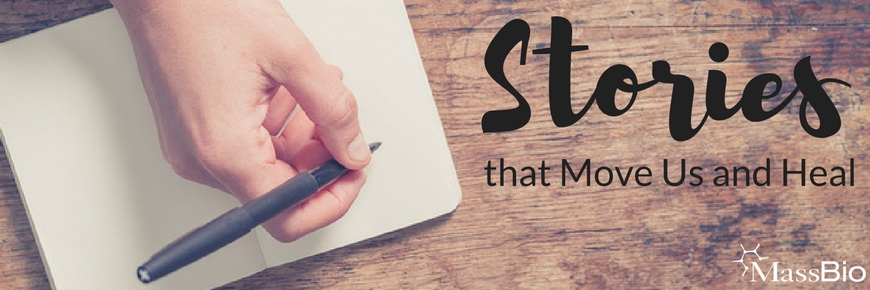
Stories do many things. They tell tales, share history, create verbal imagery, and educate; but most of all they trigger passions. Stories connect with people and can change a person’s behavior through this emotional engagement. Storytelling is a large part of the human condition and through stories, we can learn and place our lives in a perspective that is both clear and understandable. As a believer in the power of storytelling, I’d like to believe that we can use stories to give those of us who may suffer from an illness to make us feel better or allow us a better quality of life.
All patients, and those who are part of a patient’s life, have stories. Many stories. These stories are the result of thousands of interconnected events and occurrences – from diagnosis to treatment, to a possible cure or healing – it becomes the tableau from which all translate the world around them. Patients with a shared story about an illness can absorb others into their world and a broader context of their own journey. Hearing another’s story helps a person understand their own. The magic of stories lies in the kinship they foster. Moviemakers and writers have understood this secret for years.
Yes, patients and caregivers learn from their medical team. They become informed about a disease, its treatment options, side effects, and prognoses. But they also learn from those who walk in their shoes as a fellow patient and whose illness has become part of their breathing, their skin, and the one thing that may shape this new life the most. Stories are a great way of learning from others, and can help form their own experience as a patient and provide them the opportunity to uncover the meaning of the spoken word and the implied meaning that empowers them to learn and discover and understand the significance of their story.
Storytelling moves people to learn and accomplish great things. It becomes a patient’s emotional heartbeat – their expressive True North – that leads them and may inspire others in similar circumstances to enrich their lives in ways they never imagined. When you live with or around an illness, all stories matter, and this becomes a tool to foster change among people.
Of course, these stories should not be reserved for people of like circumstances. Health and medical professionals also need to hear these stories and see their patients’ lives unfold themselves in front of them during their treatment. They become a powerful experience in understanding the patient, their illness, the person behind the disease and the life that encompasses this experience. You can’t learn or read about this in a medical journal, but a physician who takes the time to listen in this fashion will have a greater impact on their patients if they recall the information that was related to a particular story. Life is filled with stories and the interaction between patient and doctor shouldn’t be exempt from this experience.
It’s story time. Time to tell those stories that are the fabric of our lives and represent a new way to communicate, interpret experiences and incorporate new information into our lives.
*Join MassBio on 9/28 for the annual Patient Advocacy Summit – this year's event is centered around the idea of sharing stories to build a patient-centered ecosystem.